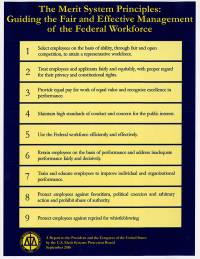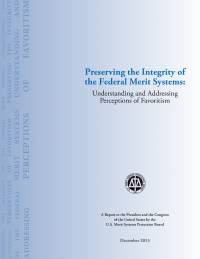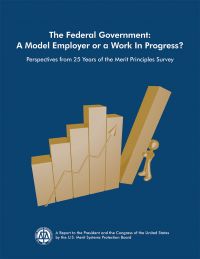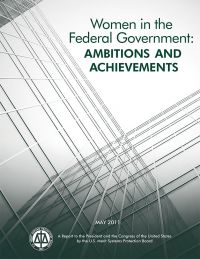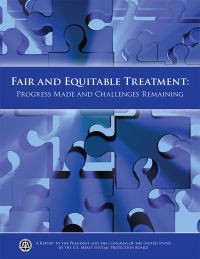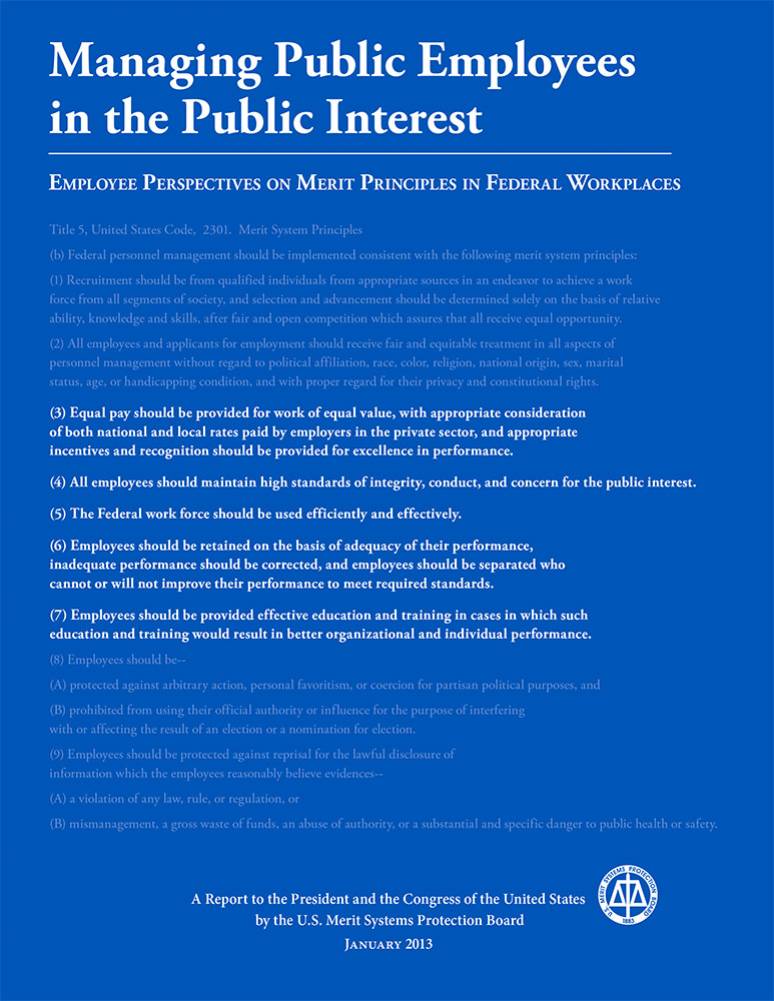
This report is based on a survey in which we asked over 40,000 Federal employees for their views regarding how well their organizations' actions comported with various aspects of the merit system principles (the nine basic standards governing the management of the executive branch workforce codified at 5 U.S.C. § 2301). Some survey items reflected more positive views than others. Issues related to stewardship appeared to pose particular challenges for agencies, although results also reflected concerns related to fairness and protection, which are the subject of previous and ongoing MSPB research. This report discusses survey data for all of the merit system principles, with a focus on the stewardship items that employees indicated were the weakest, such as: (1) using the workforce efficiently and effectively; (2) eliminating unnecessary functions and positions; and (3) addressing poor performers effectively. The report also contains recommendations for how agencies can improve their stewardship practices.
The Merit System Principles – 5 U.S.C. § 2301(b) i
Executive Summary iii
Introduction 1
Touchstones for a Diverse Civil Service 1
Methodology and Data Use 3
The Role of Stewardship in the Merit System Principles 7
The Interrelationship between Fairness, Protection, and Stewardship 7
The MSPs Require that Federal Agencies Serve as Stewards of the Federal Workforce 12
Vision and Direction 15
The Need for Clearer Direction and Better Utilization of Staff 15
The Importance of Communication 16
Investing in Employee and Organizational Productivity 21
More Investment in Employees is Needed 21
A Long-Term View of Employee Development and Performance 26
Employees’ Responsibility to Manage Their Careers and Development 30
Employee Retention 31
Retaining the Better Employees 32
Unavoidable Decline in Retention Expected 35
Addressing Retention 37
Recognition, Rewards, and Accountability 39
Measuring, Rewarding, and Incentivizing Performance 39
Addressing Performance Issues 42
Conclusions and Recommendations 45
Findings 45
Recommendations 46
Appendix A: Information on the 2010 Merit Principles Survey 49
Appendix B: The 2010 Merit Principles Survey Instrument 53
Appendix C: Results from the 1996 Survey Questions on MSPs 77
Appendix D: Results from the 2010 Survey Questions on MSPs 79
Appendix E: The Prohibited Personnel Practices – 5 U.S.C. § 2302(b) 81
Appendix F: MSPB’s Employee Engagement Questions 85
Federal employees, their supervisors, agency management, union personnel, especially Human Capital officers and employees across the U.S. Federal Government may be interested in this report. Additionally, members of Congress, and Federal managers within the Office of Management and Budget, and Office of Personnel Management that is responsible for policy making authority may find this guide helpful as a reference with human resources and civil service matters. Additionally, students pursuing research for courses within these fields, especially public administration, human resources, employment law, organizational development, and industrial-organizational psychology may find this primary source document that deals with civil service issues helpful for assignments.


